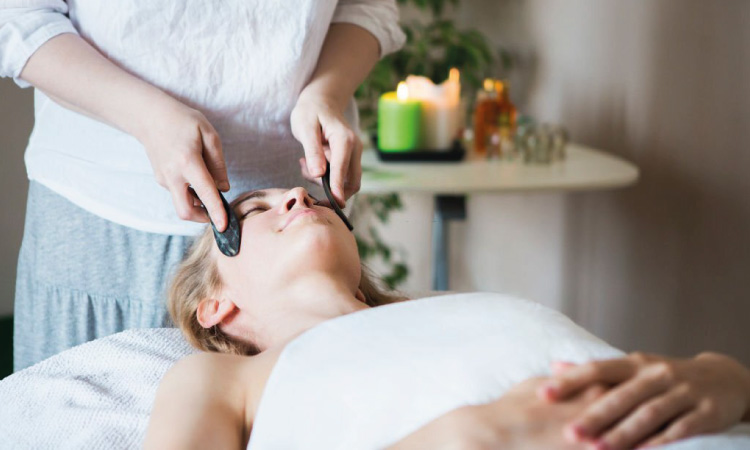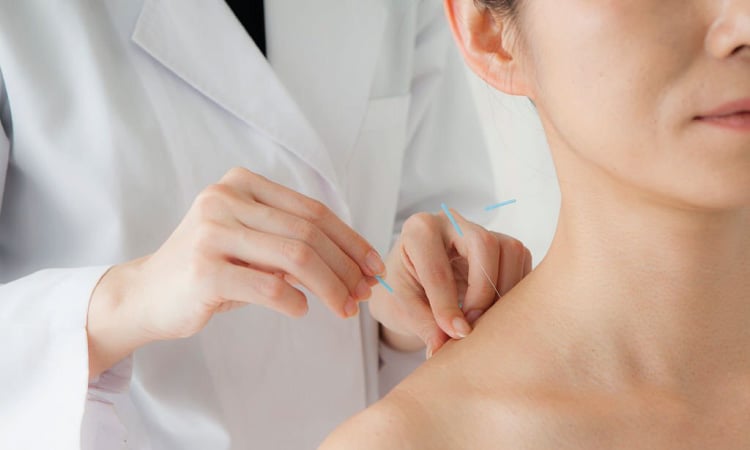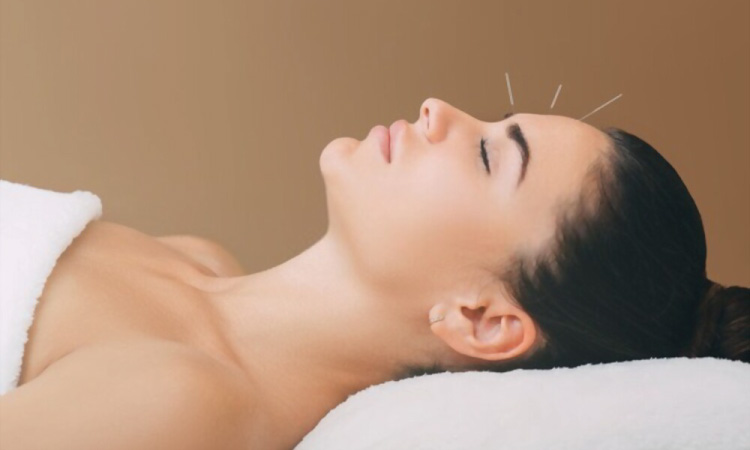In addition to joy and excitement, pregnancy often entails aches, pains, and other discomforts. To relieve morning sickness, back pain, and a variety of other symptoms without the use of medication, some people turn to alternative medicine. In Asian cultures and medical systems, acupuncture has been used for thousands of years as traditional therapy. Pregnant women may benefit from this ancient method by managing some of the most common pregnancy discomforts as well as managing labor pain. Find out more about acupuncture during pregnancy, as well as the benefits, risks, and how it works.
What Is Acupuncture?
Acupuncture is a centuries-old therapy that has been used in Asian countries for thousands of years. The origins of acupuncture can be traced back to China thousands of years ago.
According to traditional Chinese medicine, the human body is made up of two opposing elements, yin, and yang. Qi (pronounced “Chee”) refers to the movement of vital energy through internal pathways (called meridians) in our bodies. The flow of Qi is blocked when Yin and Yang are out of balance.
In acupuncture therapy, the healer inserts hair-thin needles through the skin at specific locations on your body in order to balance the flow of Qi. By doing so, imbalances are corrected and health is restored.
Is Acupuncture Safe During Pregnancy?
Acupuncture is extremely safe, beneficial, and effective for treating many pregnancy issues and concerns. According to our panel gynaecologist Dr Ankita Patel Tayal, there have been many studies which have indicated benefits of acupuncture during pregnancy. Acupuncture in the first trimester is beneficial because it helps maintain the pregnancy, nourishes the body, and relieves early pregnancy symptoms like fatigue, nausea, and heartburn. Acupuncture during pregnancy in the second trimester can provide relief from pregnancy hypertension, back pain, pelvic pain, neck pain, stress, swellings, and edema. Acupuncture during pregnancy in the third trimester helps with labor and baby position issues.
There is no risk associated with acupuncture during any stage of pregnancy. You should, however, avoid certain points/ areas during pregnancy. There are also different points/areas that you should avoid or needle differently during different stages of pregnancy. If an acupuncturist is properly trained, he or she can perform this without needling any of the forbidden points/areas. Hence, the pregnant women should seek a well-trained acupuncturist who specializes in pregnancy.
Related Reading: 9 Normal Early Pregnancy Pains
Acupuncture During Pregnancy: How Does It Work?

During the acupuncture procedure, the acupuncturist stimulates several acu-points intending to facilitate the movement of stagnated Qi and blood in the body. It is believed that stagnated Qi and blood are the root cause of many pregnancy problems. The acupuncturist can still get you the pain relief you are looking for by stimulating acu-points that are away from the area of your pain that is bothering you.
Calculate Due Date With LMP
Benefits Of Acupuncture During Pregnancy
Acupuncture during pregnancy has not been extensively studied, and not all the benefits it claims are supported by science. But still, it is found to alleviate many pregnancy issues.
Following are some of the benefits of acupuncture during pregnancy:
1. Helps to combat nausea
It is extremely common for pregnant women to suffer from nausea and vomiting. Several studies have shown that acupuncture and acupressure reduce nausea and vomiting1. Your inner arm near your wrist has a pressure point called P-6, also known as Neiguan. It is possible to relieve nausea during pregnancy and vomiting by doing acupressure or acupuncture on this point2.
2. Relieves heartburn
Pregnancy is often accompanied by digestive disorders such as heartburn, stomach discomfort, flatulence, etc. Researchers find acupuncture effective for alleviating gastroesophageal reflux disease (GERD) even in cases where drugs are ineffective3.
3. Supports the treatment of depression and anxiety
Dr Ankita Patel Tayal, an experienced obstetrician & gynaecologist, says that about 20% of women will suffer from depression at some point during their lifetime, and pregnancy is a time when they are most vulnerable to depression. Between 4% and 20% of women suffer from depression during pregnancy4.
Acupuncture has been shown to help milder forms of depression, along with other therapies such as psychotherapy and psychoeducation. Research indicates that women may benefit from acupuncture for depression5.
Related Reading: 9 Early Warning Signs Of Postpartum Depression To Watch Out For
4. Back & pelvic girdle pain
Many pregnant women experience back and pelvic girdle pain, which affects their ability to sit, stand, and walk. Acupuncture, together with chiropractic and pelvic floor physiotherapy treatments can help to relieve pelvic girdle pain. Pregnant women also benefit from acupuncture for pregnancy back pain6. It can be more effective than massage, heat, and exercise for pregnant women with low back pain.
5. Improves sleep quality
Insomnia is defined as trouble getting to sleep or staying asleep, as well as poor sleep quality. 66 to 94% of women report sleep deprivation during pregnancy7. Insomnia during pregnancy may increase the risk of postpartum mood disorder. Studies have shown that acupuncture can dramatically improve sleep quality in pregnant women, perhaps by increasing melatonin secretion. It may be recommended to use acupuncture instead of pharmaceuticals because it is a low-cost, low-risk alternative.
6. Ease headaches
Migraines and tension headaches generally become less severe during pregnancy due to the rise in estrogen levels in the body. In spite of this, some women experience headaches during the first trimester, and for many of them, it may last the whole pregnancy.
It has been found that acupuncture can reduce the frequency and duration of migraine attacks. As a result, acupuncture shows promise in reducing pregnancy headache pain, reducing the need for medication, and improving sleep and mood. There are other recommended home remedies to combat pregnancy headaches.
7. Reduce the symptoms of carpal tunnel syndrome
Carpal tunnel syndrome (CTS) is a fairly common condition, usually in the third trimester of pregnancy. Hormonal changes and swelling often lead to this condition by increasing pressure in the area. In this condition, the median nerve is entrapped by the transverse carpal ligaments in the wrist. It causes numbness and tingling in the fingers. Patients suffering from carpal tunnel syndrome have reported improved symptoms, improved function, and reduced pain after receiving acupuncture8.
8. Helps the baby to turn to a favorable position
If your baby doesn’t fall or isn’t in the right position, it is referred to as “malposition” or “malpresentation”. Some acupuncture points relax the uterine ligaments and help bring blood flow to the pelvis. This encourages the baby to descend into the birth canal in a proper position9. Moxibustion combined with acupuncture is a way to turn the baby into a more favorable position. During moxibustion, Moxa, traditionally harvested, dried, and stored herb, is burned to apply heat to specific points on the body10. Moxa’s medicinal properties involve moving energy.
9. Promotes labor
Acupuncture is counted as a non-invasive, and effective technique to reduce labor pain11. According to traditional Chinese medicine, there are seven main acupressure points on the body that are believed to induce labor12, and acupuncturists are well versed in the use of these points. Acupuncture helps to prepare your cervix for labor and delivery and, in many cases, this helps to accelerate the labor, and reduce the labor length. It can reduce the need for pharmacological pain relief, decrease c-section rates, and improve pain management.
Related Reading: False Labor Pains- 8 Ways To Know This Is Not Real Pain
10. May prevent miscarriage
It is not uncommon to use acupuncture during pregnancy to prevent miscarriage. According to one recent study, acupuncture done in conjunction with IVF reduced miscarriages by 50%.
How Often To Do Acupuncture During Pregnancy
You may benefit from weekly acupuncture treatments during the first trimester of your pregnancy in order to manage nausea and vomiting, prevent miscarriage, increase energy, prevent digestive issues, and relax and sleep better13.
As the pregnancy progresses, as per the requirement of the expecting woman, acupuncture can be used 1-2 times a week for up to twelve sessions.
When a woman reaches her third trimester, she should begin weekly 30-minute acupuncture sessions and continue them until her due date. If the baby is in the breech position, weekly treatment should begin at 32 weeks. Acupuncture for natural induction is administered twice a week after 40 weeks in the event of overdue pregnancy14.
Risks Of Acupuncture During Pregnancy

As long as it is done correctly by a trained professional, acupuncture during pregnancy has a very low risk of negative effects. Even though the most commonly reported adverse reactions include redness, soreness, or infection at the sites where needles are inserted, as well as injuries from excessive needle insertion, the baby was unaffected and delivered healthy and full-term.
But one must not overlook some risk factors associated with acupuncture during pregnancy:
- When pregnant, it may be especially important to consider where acupuncture is administered. Many acupuncture points can cause premature labor, especially if used before a woman is full-term
- Despite the fact that acupuncture helps to prevent miscarriage during IVF treatment, if administered incorrectly, it may contribute to higher miscarriages
- It is best to avoid acupuncture during your first trimester, even though there is no evidence that it leads to miscarriage or premature labor when used correctly
- There are some obvious risks associated with acupuncture during pregnancy if you choose a practitioner who is not certified or does not follow proper safety protocols. The risk of transmitting blood-borne diseases, such as HIV, is always present when working with needles in the human body
- The usage of incorrect needles or needles that differ in size from the ones used in traditional acupuncture, can create more adverse reactions and risks
Acupuncture Points To Avoid During Pregnancy
Although there is some uncertainty about which and how many points are prohibited, the following are generally accepted points that acupuncturists avoid before week 37 in pregnancy15:
- LU7 (lung channel)
- SP6 (spleen channel)
- GB21 (gall bladder channel)
- LI4 (large intestine channel)
- BL60 (bladder channel)
- BL27-BL34 (sacral region)
- BL67 (bladder channel)
- CV3-CV7 (lower abdomen)
Conclusion

When certain matters are taken into consideration, acupuncture can be an effective tool to relieve pregnancy discomforts and improve labor and delivery processes. It is important to choose your acupuncturist carefully. Find an acupuncturist who is certified by the National Certification Commission for Acupuncture and Oriental Medicine (NCCAOM). Be sure that your acupuncturist has extensive experience in treating pregnant women.
FAQs
If you are past your due date, additional acupuncture points can be added to facilitate your baby’s descent into the birth canal, stimulate cervical dilation and softening, and strengthen the contractions.
The procedure can be repeated more frequently (at least every 1-3 days) until labor begins. In addition to building energy, acupuncture helps to soothe anxieties and frustrations that may arise after a woman’s due date has passed.
There should be no pain associated with acupuncture. There may be some feeling of heaviness or heat around some points, but in general, acupuncture is relatively painless.
As a matter of fact, when it is used to affect hormonal systems, it has to be gentle enough to have the best results. Many people find acupuncture to be relaxing, and they often end up falling asleep during the treatment.
Acupuncture will not trigger preterm labor if it is done correctly. The practitioner, for example, will avoid certain points during the procedure until your due date as those points have been found to promote labor. Acupuncture points used for pre-birth are not likely to cause early labor.


